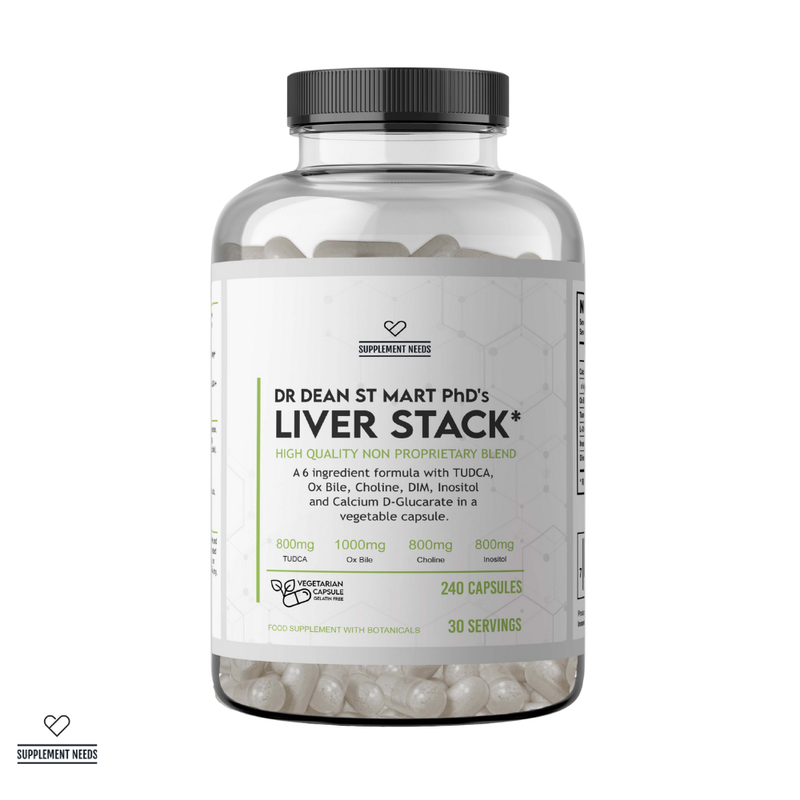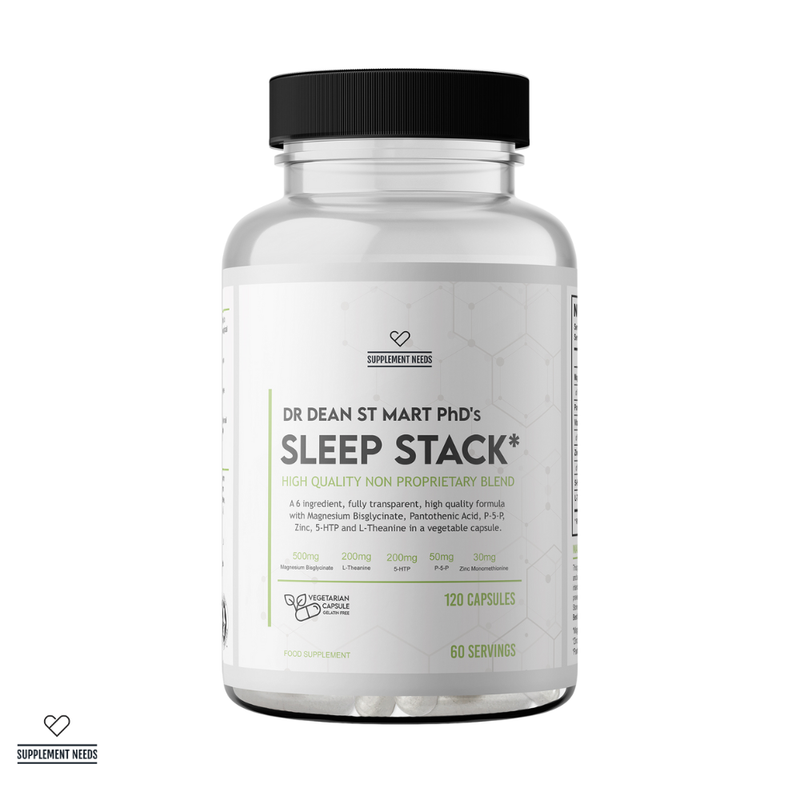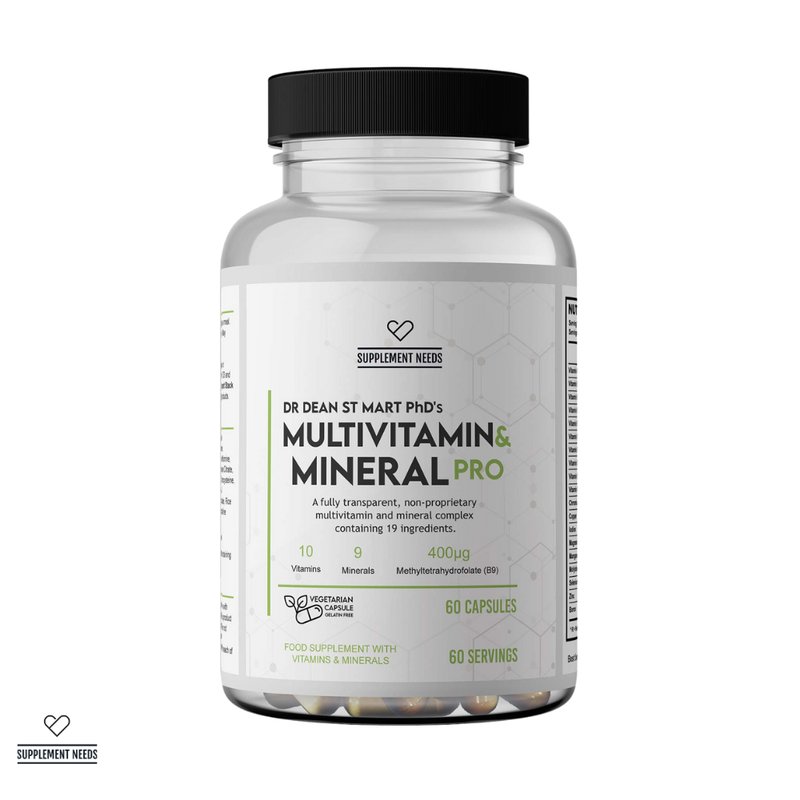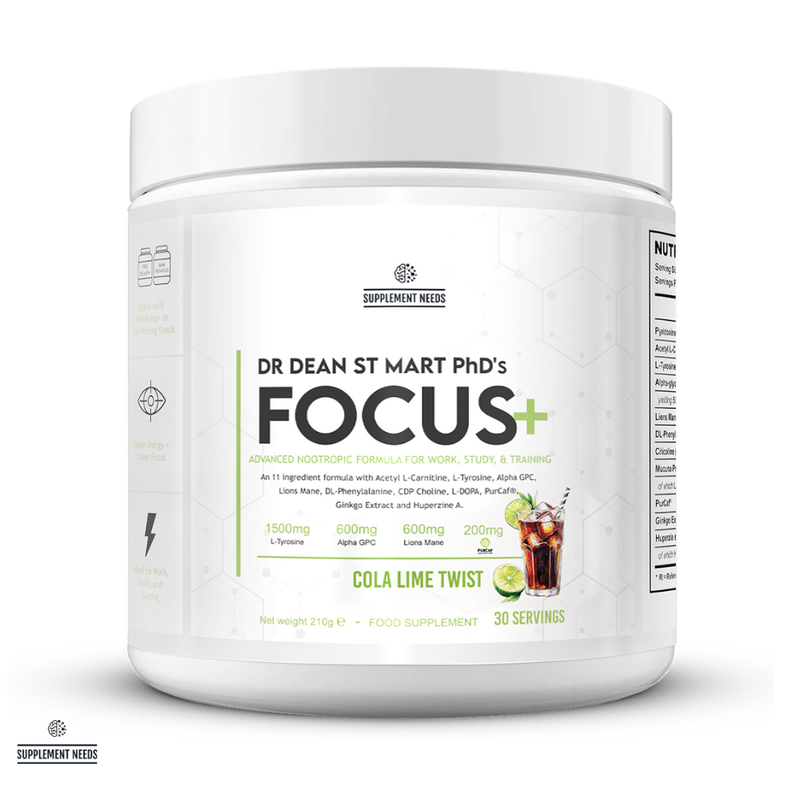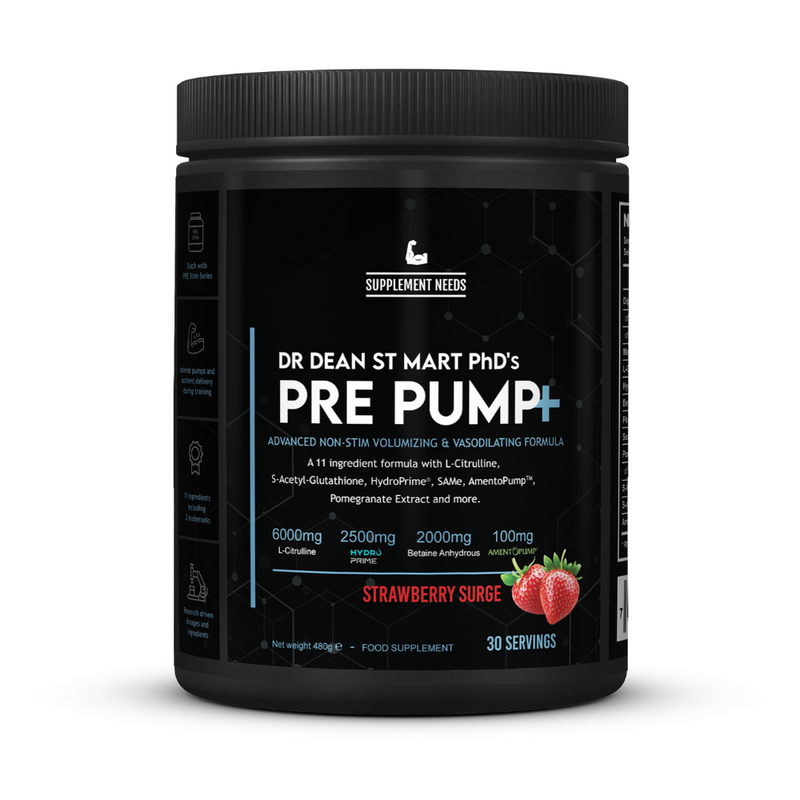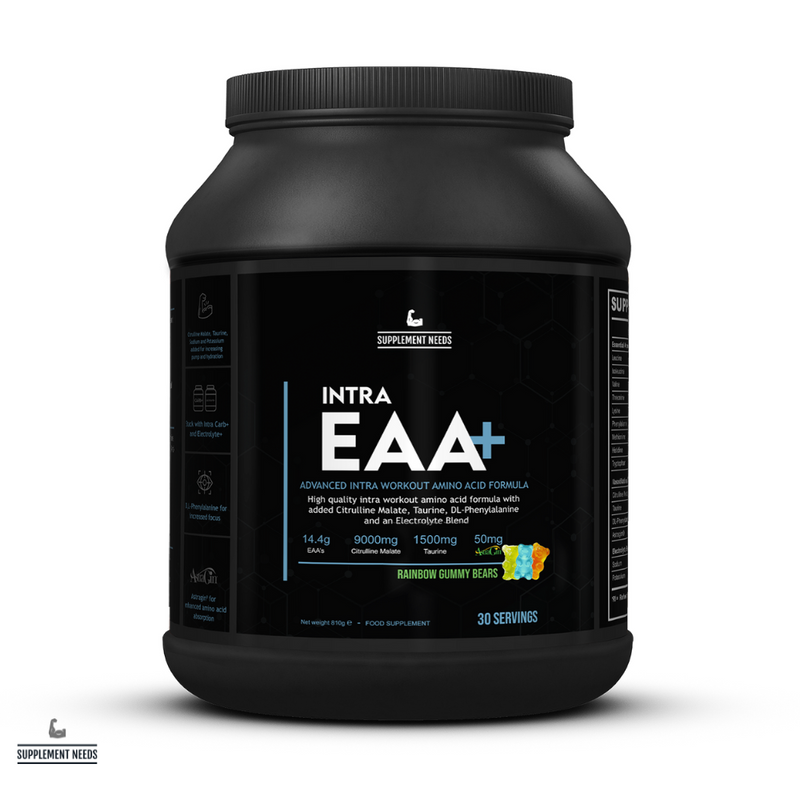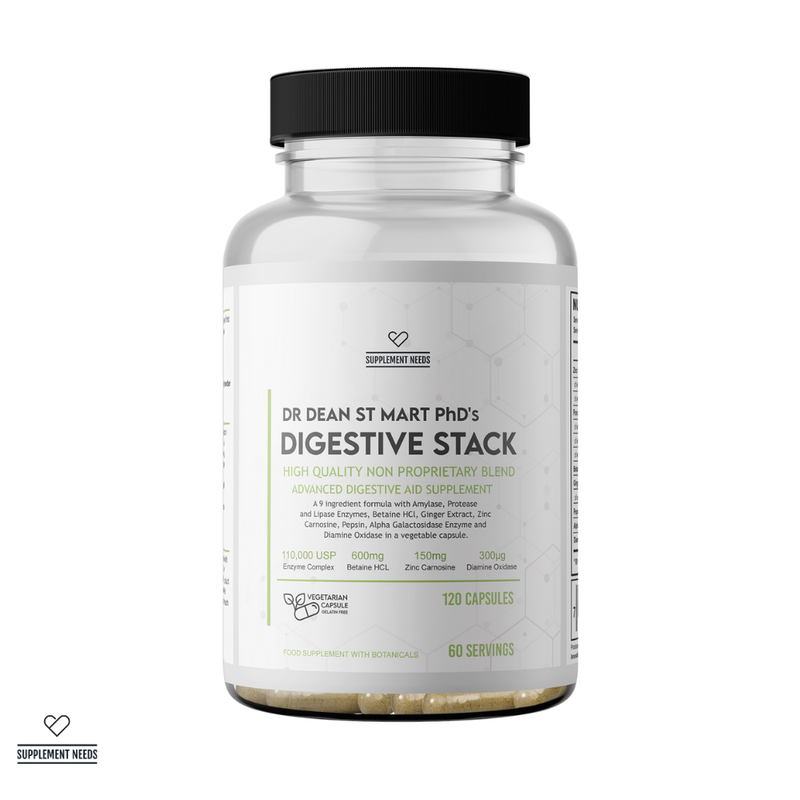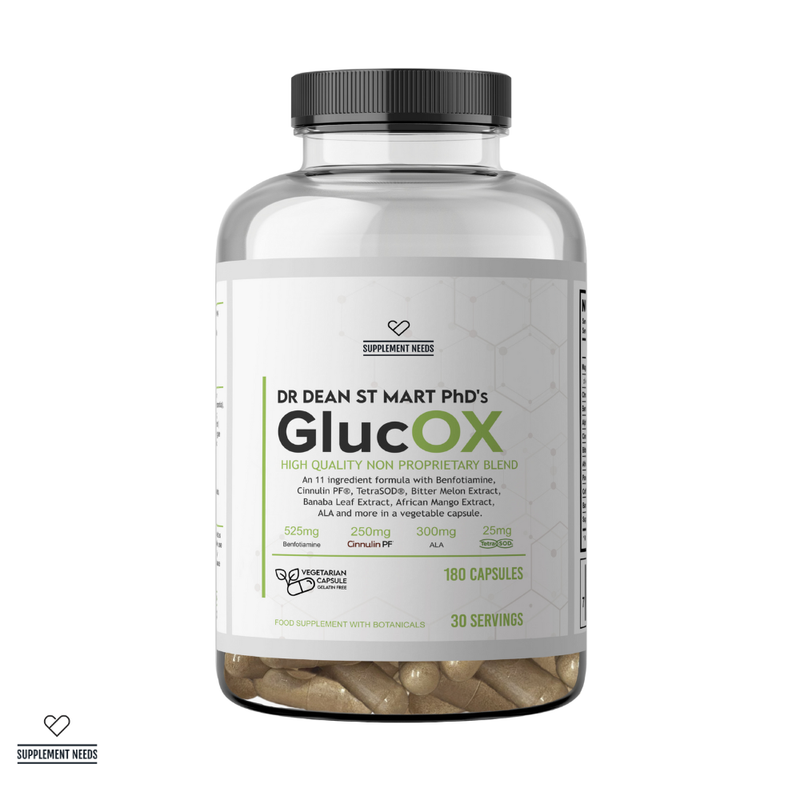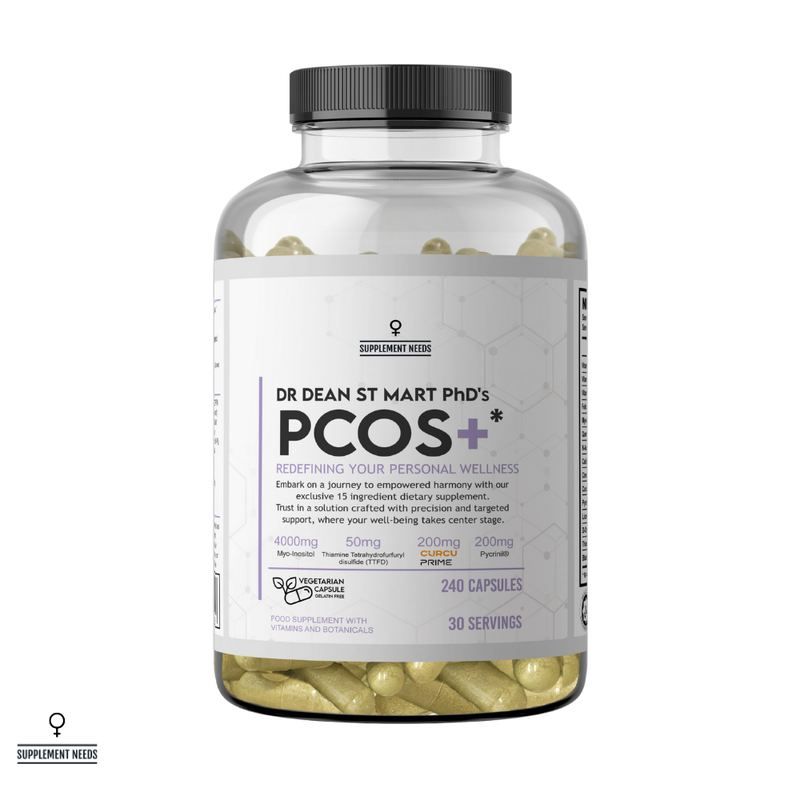Every body is different. It might sound like a simple expression people trot out, but it’s very much factually correct. When it comes to exercise, nutrition, and even just simple daily habits, what works for one person may not be suitable for another - which is why, when it comes to managing your health, it can be beneficial to have an understanding of your own unique needs. At the SN Hub, we have a fantastic range of functional tests available to help you understand your health. But, before you undergo any functional tests, we reckon you should probably know what they are, how they work, and how they can benefit you…
What is functional testing?
When you’re unwell, and you visit a doctor for a blood test or health check-up, these are typically to diagnose a specific issue you’re experiencing. To help understand when your body is out of balance, any results you get are measured against the average of the population - not your specific bodily functions - which creates criteria doctors can use to identify the problem. And, there is absolutely nothing wrong with this. General medical tests are essential to managing the health of a population.
But, there may come a time when you want something that can give you a deeper understanding of your own body and internal systems.
If you’re managing a chronic condition for example, want to identify any food sensitivities or allergies, or want to optimise your nutrition, you will want something that is personalised to your needs.
Thankfully, that’s where functional testing comes in.
Offering more bespoke, personal insights into your health, functional testing is an umbrella term covering a range of test types. But, instead of conventional health tests that focus on identifying specific issues because of certain symptoms, functional testing can go further to offer you broader insights into potential underlying or root causes of imbalances in your body.
Or, to put it another way, functional testing is a way to get a more holistic (as in interconnected) view of your health and general wellbeing rather than treating an issue in isolation.
How does functional testing work?
As you’re probably aware, there are countless tests medical practitioners can conduct to identify how your body works, and identify if there are any issues. But how do they work?
Well, functional tests assess your body on a biochemical level.
As a discipline, biochemistry examines the chemical processes and substances that operate in living organisms - often at the molecular level. By exploring the structure, composition and chemical reactions within living systems, biochemists can begin to understand their functions and how to control their impact1.
But what does this mean for functional testing? Simply that it works through chemical analysis of biological compounds. Functional tests use a range of bodily sources, from urine and stool samples to saliva and hair, to identify chemical compounds within the body and how they are affecting your health.
Note - you’ll find more specific information about different types of functional tests below.
Why should you consider functional tests?
Guesswork has no place in managing your overall health and wellbeing. Functional tests provide clarity around various chemical reactions within the body by providing tangible data about how well they work - or don’t work.
As such, there are several circumstances in which functional testing can be a benefit to you, including:
-
Optimising athletic performance: understanding the deeper nutritional needs of your body, how it metabolises food, and areas in which you can improve your diet or supplementary programme can be a huge boon when you’re trying to optimise physical performance. This deeper analysis can help to guide your training routine, diet and more to get the best results you can.
-
Managing stress: stress affects the body in different ways. Conditions such as fatigue, mood disorders, and physical symptoms like intestinal or cardiovascular issues can all be exacerbated by stress2. By undergoing functional testing, you may be able to gain valuable insights into your stress response system and what is causing your body to react a certain way.
-
Living with chronic conditions: there are dozens of chronic conditions, and medical intervention often cannot completely manage the issue on its own – nutrition and lifestyle play an important role in symptom management3. Functional testing offers people living with chronic conditions a deeper insight into how their body operates and allows them to make evidence-based lifestyle choices to support their wellbeing.
-
Addressing persistent symptoms: as you will see below, there are a selection of comprehensive functional tests to examine persistent gut or hormonal issues. These can help to identify what is imbalanced, and guide your future decisions about your health.
Overall, the key benefit of functional testing - and the reason these tests are useful - is information.
Having detailed knowledge about how your body works allows you to make fully informed, data-driven decisions about your health. Aside from the potential physical benefits of this information, knowing how your body works can be incredibly empowering. It can give you more control over what you do, and how you can best support your wellbeing.
What types of functional testing are available?
Above, we explained what functional testing was as a general idea. But, it is incorrect to think of functional testing as a homogenous entity - but rather the overarching umbrella term that groups together different types of tests.
To help you gain a deeper understanding of what’s included within the functional testing bracket, we’ve laid out some of the key test areas available, and the tests you may choose to undergo as part of a functional health assessment…
Hormonal health
Hormones play a key role in regulating and controlling bodily processes because they act as chemical messengers; carrying signals to ‘coordinate different functions’4 in tissues, organs and more. The endocrine system is in charge of producing, distributing, and regulating hormones within the body via various glands and organs, including but not limited to5:
-
The pituitary gland: amongst others, this releases the so-called ‘happy hormones’ (like oxytocin and dopamine) which play a role in mood regulation. It’s also important to note that the pituitary gland is responsible for the production of fertility hormones. These include the Follicle-Stimulating Hormone (FSH), which stimulates the growth and maturation of ovarian follicles and promotes the production of estrogen. Another important fertility hormone produced in the pituitary is the Lutenizing Hormone which triggers ovulation and the production of progesterone.
-
The hypothalamus: this part of the brain is responsible for many hormones, including growth hormone-releasing hormones, somatostatin (which helps with hormone inhibition and gastrointestinal regulation) and many more.
-
The pineal gland: melatonin is synthesized via tryptophan (an amino acid) here, which helps regulate your sleep and circadian rhythm.
-
The thyroid gland: the thyroid releases many hormones, including thyroxine, which plays a role in fatigue, weight management and more.
-
Pancreas: this is the hub for insulin production, which is essential for blood sugar regulation, and produces other hormones to manage bodily glucose levels.
-
Adrenal glands: amongst others, these glands are responsible for producing cortisol (which is a key player in your stress response), and epinephrine and norepinephrine (which are involved in cardiac function, blood pressure, and even the ‘fight, flight, or freeze’ response to stressful events).
Note: you might recognise epinephrine by another name - adrenaline.
But why are hormonal health tests useful? Being able to understand your personal hormone levels to a higher degree can guide your lifestyle and medical decisions.
For example, consider cortisol and your stress response.
Small doses of stress can be a good thing, they protect us from harm and help us learn and adapt for the future. However, persistent elevated levels of cortisol due to chronic stress can potentially lead to dysregulation in the body, changing key brain-body interactions, rewriting neural circuits, and even impacting metabolism and inflammation responses6. Knowing your unique balance of this can offer insights into your stress resilience.
The DUTCH Complete
The DUTCH Complete test is incredibly comprehensive, assessing 35+ sex and adrenal hormones to provide insights into your hormonal health and balance.
Note - DUTCH stands for Dried Urine Test for Comprehensive Hormones.
Some of the hormones analysed include:
-
Oestrogen, progesterone and testosterone: these are sex hormones, named because they’re primarily involved in sexual development (puberty), reproduction (ovulation, menstruation, and spermatogenesis), libido, and fertility.
-
DHEA: known as dehydroepiandroesterone, this is a precursor to the sex hormones mentioned above (basically meaning it’s converted into them).
-
Cortisol and cortisone: as we mentioned above, these are involved in regulating how your body adapts and responds to stress.
-
Organic acids: related to nutrition, the DUTCH Complete tests levels of B12, B6, biotin and glutathione in your body to understand how your metabolic processes are performing.
During the test, patients are instructed to collect urine samples at different times throughout the day to offer a more complete picture of their health. Urine is easy for patients to collect, and drying it not only offers logistical advantages for shipping and testing, but it also has a superior efficacy in measuring certain parameters such as hormone metabolites, cortisol clearance, and free cortisol levels - particularly over saliva or a serum.
There are numerous benefits to this kind of testing for both men and women, particularly if you want to monitor your response to hormone replacement therapy (HRT). Some of the key advantages for men and women include:
-
For men: insights into infertility, prostate issues, low libido, sleep disruptions and fatigue, mood disorders, and weight gain.
-
For women: insights into infertility, PCOS, PMS, PMDD, menopause, low libido, sleep issues and fatigue, and mood disorders.
The DUTCH Cycle Mapping with Complete
Building on the insights of the DUTCH Complete, you may want to consider gaining more information specific to your menstrual cycle with the DUTCH Cycle Mapping with Complete.
Undergoing this test gives you all the information from the above, but also provides you with a deeper understanding of your specific hormone fluctuations between the follicular, ovulatory, and luteal phases - which can help you to identify underlying fertility issues or menstrual irregularity.
Should you take this test, then you will receive a graph of your Progesterone and Estradiol levels across your menstrual cycle. For many women, this can be an invaluable insight; aftert all, data empowers!
Note - this test is not suitable for postmenopausal women, or those on hormonal birth control that will have naturally impacted their hormone levels.
Gut health
Gut health has become increasingly of interest over the last few years as people look for lifestyle changes and supplemental support to manage their gastrointestinal tract and digestive health.
Having an unhealthy gut microbiome and digestive tract issues can have a knock-on effect on your general health; from imbalances that cause inflammatory bowel conditions (like inflammatory bowel disease, IBD, or irritable bowel syndrome, or IBS), to manifesting in other ways like obesity or diabetes.7
In fact, managing your gut health is so important we’ve actually written about it previously in two very in-depth guides - so rather than going into too much detail here, we encourage you to check them out…
Guides: What is the Microbiome? The Importance of Gut Health & What are the Best Supplements for Improving Gut Health & Digestion?
Knowing how important it is, where can functional testing come in to help you manage your gut health on a personal level? As with many tests, by offering you specific insights into your own bowel activity.
The GI360 Complete
Gut health tests, like the GI360 Complete, focus on gathering information about how your body absorbs or digests nutrients, identify remaining inflammatory markers, your specific immunology, and intestinal health markers like beta-glucuronidase. Using stool samples, this test measures the remnants of your digestive tract to identify imbalances that may be the root of persistent problems.
Consider that the GI360 Complete test isolates pathogenic bacteria. It then tests which antibiotics can kill said pathogenic bacteria. This provides you with clear, actionable information that you can take forward with your health care provider. This is a truly empowering test.
Let’s look more closely at one example that is measured as part of the test: beta-glucuronidase.
Beta-glucuronidase is responsible for maintaining hormonal and metabolic homeostasis. Or, to put it simply, it helps regulate your hormones - particularly oestrogen - and metabolism of chemical compounds for detoxification. It does this by breaking down the bonds previously made by the liver to make compounds water-soluble (and easier to excrete). A small amount of this can be useful, as it allows the body to reabsorb molecules when necessary. (It’s also why we developed Liver Stack, which contains 1,000 mg of Calcium D-Glucarate per 8 capsule serving).

However, when there is an elevated level of beta-glucuronidase in your gut, this could be a sign of:
-
Oestrogen dominance: when the body is absorbing too much oestrogen it causes a hormonal imbalance, which can potentially affect mood, fertility levels, and cause menstrual issues8.
-
Toxicity: if beta-glucuronidase is elevated, it may potentially overperform and reintroduce toxins into the body, affecting your health.
-
Bacterial imbalances: elevated levels of beta-glucuronidase can indicate increased growth of certain bacteria in the gut, which may increase its activity.
-
Medicine efficacy: concentrations of beta-glucuronidase have been explored with regard to the absorption and efficacy of immunosuppressant drugs after transplants, which may influence and inform procedures for individual dosage9.
-
Inflammation marker: beta-glucuronidase has been noted as a key inflammation marker that can be used to identify gastrointestinal issues like IBD (inflammatory bowel disease)10.
Through the analysis of beta-glucuronidase and other bacterial, viral, parasital, and pathogenic markers, the GI360 can help to indicate IBS or inflammation-based conditions, autoimmune diseases, joint pain, food sensitivities, nutritional deficiencies and skin conditions.
GI360 Complete + Zonulin + H Pylori
In addition to the information provided by the GI360 Complete, you may wish to add testing for zonulin and H. Pylori to investigate underlying gastrointestinal symptoms.
Zonulin helps to regulate intestinal permeability in the tight junctions of your bowels11. Or, in other words, it helps to maintain the intestinal barrier between cells to prevent water and soluble molecules from leaking out. This has been linked to metabolic syndrome.
H. Pylori is a type of bacteria. A Helicobacter Pylori infection has been linked to stomach or duodenum ulcers12, gastritis, and GERD (gastroesophagal reflux disease).
Nutritional health
A key part of maintaining your nutritional health is through living a healthy lifestyle - eating a balanced diet, getting regular exercise, and effectively ensuring your body has all the water, fuel, and necessary vitamins and minerals it needs to function properly.
By supplying your body correctly, your brain, muscle, bones, nerves and other tissues have energy, your body is able to regulate hormonal and enzymatic homeostasis, and manage various systems (like your immune or circulatory system).
But, as with everything we’ve already discussed in this article, it can be hard to know what your individual requirements are, and how to make sure you’re meeting them. Your nutritional needs can vary depending on several factors, including:
-
Ageing: your body naturally changes as you get older, and it’s important to match your nutritional intake with your physical age. For example, while you naturally lose muscle as you age, more extreme cases can result in a condition called sarcopenia (a skeletal muscle disorder). While limited, current research has seen a positive relationship between maintaining a healthier diet from an earlier age and the mitigation of symptoms13.
-
Hormonal or physical changes: from puberty to menopause, the body goes through incredible hormonal and physical changes – and these will impact your nutritional needs. For example, for optimal health for both parent and child during pregnancy, research has suggested an ‘eat better, not more’14 mentality, with nutrient-rich fruits and vegetables, whole grains, and healthy fats and fatty acids (such as Omega-3).
-
Activity levels: higher levels of physical activity, as seen in professional athletes or gym goers, prompt your body to burn more energy, which needs to be replaced. By adding valuable extra nutrition like protein and carbohydrates into your diet, you give your body the fuel it needs to sustain these activity levels. High-protein diets in particular are popular amongst athletes due to their benefits towards performance15 – but remember, no one diet is right for everyone, it depends on your own physical composition.
-
Medical diagnoses: various chronic conditions and symptoms can be partially managed through dietary and nutritional intervention. For example, research has shown that low-GI diets (involving foods with a low GI number) can be beneficial for people living with diabetes, whilst exploring a diet richer in fatty acids like Omega-3 can have a positive effect on cognitive function amongst older populations16.
Note - GI stands for Glycemic Index, and is a marker of how quickly the carbohydrates in foods can be broken down and released as glucose into the body. Low GI foods, such as oats and lentils, are rich in complex carbohydrates, which take longer to digest. As such, they release glucose in a more controlled manner, reducing the risks of spiking blood glucose levels and, in this case, helping people with diabetes manage their insulin.
By learning your unique nutritional needs, you can make the best choices for your body and support your health…
The Organic Acid Test (OAT)
The Organic Acid Test - or OAT - is designed to offer you a deeper insight into your overall health. By screening for 76 urinary metabolites, this type of functional test is valuable for uncovering underlying causes of chronic illnesses, as well as seeing where you can improve your nutrition to support your body.
Some of the key substances tested for to identify issues include, but are not limited to:
-
Oxalate metabolites: a natural byproduct of the metabolism, oxalate is the base of oxalic acid17 that is excreted in the kidneys. Elevated levels of oxalate may be indicative of recurrent kidney stones, hyperoxalemia, or chronic kidney disease.
-
Neurotransmitter metabolites: assessing for neurotransmitter metabolites (the byproducts of neurotransmitter production) can identify, amongst others, disorders affecting dopamine and serotonin metabolism in the brain. Issues here may present as mental health disorders, for example.
-
Detoxification markers: your body works hard to eliminate toxins that may affect your general health. Elevated markers of detoxification can suggest that your body is under an increased toxin burden - or put another way, you may have been exposed to more toxins and your body is working hard to remove them, and may need additional support.
This test is useful for guidance and support with managing chronic or complex conditions like low energy, cognitive decline, nutrient deficiencies, chronic fatigue, and gastrointestinal issues.
Note - as we mentioned above, so too is it the case that urinary samples are more valuable with this test; they are more sensitive than blood or serum tests and allow for more accurate analyses.
OAT + Mycotox
You may want to combine a comprehensive OAT analysis with a GPL- MycoTOX test, which helps to identify exposure to mould or mycotoxins. Mycotoxins are produced by certain moulds and fungi, and can have serious consequences on human health18, being linked with a range of chronic diseases.
The GPL-MycoTOX test screens for 11 mycotoxins and 40 species of mould from a single sample to offer you the best and most comprehensive results. Using an advanced level of Liquid Chromatography-Mass Spectrometry (LC-MS/MS), this functional test can identify even low levels of present mycotoxins to ensure accuracy.
Note - liquid chromatography works by separating compounds in a solvent based on their different characteristics (weight, polarity, etc). This causes them to move at different speeds along a preprepared column until they are in clear, separate bands. From there, mass spectrometry ionises a chemical and identifies it compared to a control sample.
Hair Toxic and Essential Elements
Another way to measure toxin exposure or nutrient levels is through your hair via a Hair Toxic and Essential Elements test.
As hair grows, it incorporates elements from the body permanently into the structure. This can provide a snapshot of when/if exposure to toxic elements occurred, or if you have any excesses, imbalances, or deficiencies in certain minerals like Magnesium or Zinc, providing important information about your overall health.
When used in conjunction with other tests, this offers you a more rounded picture of your health – and where you may benefit from certain interventions, supplements, or dietary changes.
The importance of personalised medicine
Rooted in the belief that “since individuals possess nuanced and unique characteristics at the molecular, physiological, environmental exposure, and behavioural levels, they may need to have intervention provided to them… that are tailored to these nuanced and unique characteristics”19, functional testing is a key tenet of personalised medicine.
Personalised medicine, as the name suggests, defines a patient by their personal needs.
As such, it argues for a tailored approach to medical intervention to find the best ways to support overall health as an individual. Functional tests, like those we have explored throughout this article, are a way for you to gain insight into your unique needs.
At SN Hub, we’re dedicated to offering data-driven advice and guidance catered to your specific health goals. By providing access to state-of-the-art technology and bespoke testing, we’re here to offer you a thorough view into your own body.
Whether you want to manage specific health concerns, optimise your athletic performance, or simply work towards a healthier, stronger self, we’re here to help make medical information accessible and understandable.
Explore functional testing at the SN Hub today
For more insights and information about testing, recovery therapies and supplements, read the Supplement Needs blog…
What Are the Benefits of Cryotherapy? | What Is a FibroScan & Why Should You Get One | Infrared Saunas vs Traditional Saunas: What’s the Difference?
Disclaimer
The information on this website should not be used as a substitute for medical care or advice. If you have questions about your health, please contact your doctor.
References:
1. ACS Chemistry For Life [Online], 2025, ‘Biological/Biochemistry: What is biochemistry?’. https://www.acs.org/careers/chemical-sciences/areas/biochemistry.html. Accessed on 16th April 2025.
2. Chu, B., et al., 2024, ‘Physiology, Stress Reaction’, NIH StatPearls [Internet]. https://www.ncbi.nlm.nih.gov/books/NBK541120/. Accessed on 16th April 2025.
3. Beidelschies, M., et al., 2019, ‘Association of the Functional Medicine Model of Care with Patient-Reported Health-Related Quality-of-Life Outcomes’, Jama Network Open, 2(10):e1914017. https://pmc.ncbi.nlm.nih.gov/articles/PMC6822085/. Accessed on 16th April 2025.
4. Cleveland Clinic Online, 2022, ‘Hormones’, https://my.clevelandclinic.org/health/articles/22464-hormones. Accessed on 17th April 2025.
5. Campbell, M., & Jialal, I., 2022, ‘Physiology, Endocrine Hormones’, StatPearls [Internet]. https://www.ncbi.nlm.nih.gov/books/NBK538498/. Accessed on 17th April 2025.
6. Roberts, B.L., & Karatsoreos, I.N., 2021, ‘Brain-body responses to chronic stress: a brief review’, Fac Rev., 10:83. https://pmc.ncbi.nlm.nih.gov/articles/PMC8725649/. Accessed on 17th April 2025.
7. Bull, M.J., & Plummer, N.T., 2014, ‘Part 1: The Human Gut Microbiome in Health and Disease’, Intergr Med (Encinitas), 13(6):17-22. https://pmc.ncbi.nlm.nih.gov/articles/PMC4566439/. Accessed on 17th April 2025.
8. Patel, J., et al., 2023, ‘Assessment of gut microbial β-glucuronidase and β-glucosidase activity in women with polycystic ovary syndrome’, Sci Rep., 13:11967. https://pmc.ncbi.nlm.nih.gov/articles/PMC10366212/. Accessed on 17th April 2025.
9. Khan, M.H., et al., 2022, ‘Fecal β-glucuronidase activity differs between hematopoietic cell and kidney transplantation and a possible mechanism for disparate dose requirements’, Gut Microbes, 14(1):2108279. https://pmc.ncbi.nlm.nih.gov/articles/PMC9351555/. Accessed on 17th April 2025.
10. Siddiqui, I., Majid, H., & Abid, S., 2017, ‘Update on clinical and research application of fecal biomarkers for gastrointestinal diseases’, World J Gastrointest Pharmacol Ther., 8(1):39-46. https://pmc.ncbi.nlm.nih.gov/articles/PMC5292605/. Accessed on 17th April 2025.
11. Fasano, A., 2012, ‘Zonulin, regulation of tight junctions, and autoimmune diseases’, Ann N Y Acad Sci., 1258(1):25-33. https://pmc.ncbi.nlm.nih.gov/articles/PMC3384703/. Accessed on 17th April 2025.
12. NHS England Online, 2022, ‘Cause: Stomach Ulcers’, https://www.nhs.uk/conditions/stomach-ulcer/causes/. Accessed on 17th April 2025.
13. Robinson, S., et al., 2023, ‘The role of nutrition in the prevention of sarcopenia’, Am J Clin Nutr., 118(5):852-864. https://pubmed.ncbi.nlm.nih.gov/37657521/. Accessed on 17th April 2025.
14. Marshall, N.E., et al., 2022, ‘The importance of nutrition in pregnancy and lactation: lifelong consequences’, Am J Obstet Gynecol., 226(5):607-632. https://pubmed.ncbi.nlm.nih.gov/34968458/. Accessed on 17th April 2025.
15. Kaufman, M., et al., 2023, ‘Popular Dietary Trends’ Impact on Athletic Performance: A Critical Review’, Nutrients., 15(16):3511. https://pmc.ncbi.nlm.nih.gov/articles/PMC10460072/. Accessed on 22nd April 2025.
16. Ojo, O., 2019, ‘Nutrition and Chronic Conditions’, Nutrients., 11(2):459. https://www.mdpi.com/2072-6643/11/2/459. Accessed on 22nd April.
17. Hawkins-van der Cingel, G., et al., 2024, ‘Oxalate Metabolism: From Kidney Stones to Cardiovascular Disease’, Mayo Clinic Proceedings, 99(7):1149-1161. https://www.sciencedirect.com/science/article/pii/S0025619624000909. Accessed on 22nd April 2025.
18. World Health Organisation Online, 2023, ‘Mycotoxins’. https://www.who.int/news-room/fact-sheets/detail/mycotoxins. Accessed on 22nd April 2025.
19. Goetz, L.H., & Schork, N.J., 2018, ‘Personalized medicine: motivation, challenges, and progress’, Fertility and Sterility, 109(2): 953-963. https://www.fertstert.org/article/S0015-0282(18)30407-2/fulltext. Accessed on 16th April 2025.






